- Corporate Governance
- 1. Group structure and shareholders
- 2. Capital structure
- 3. Board of Directors
- 4. Group Management
- 5. Compensation, shareholdings and loans
- 6. Shareholders’ participation
- 7. Change of control and defence measures
- 8. Statutory auditors
- 9. Information policy
Corporate Governance
1.Group structure and shareholders
1.1Group structure
On 14 September 2016, Arbonia AG (formerly AFG Arbonia-Forster-Holding AG) entered into a share purchase agreement with the then-family shareholders, the members of the Board of Directors and the management of Looser Holding AG, Arbon. On 29 September 2016, Arbonia AG issued a public purchase and exchange offer for all publicly held registered shares in Looser Holding AG. On 13 December 2016, both the share purchase agreement and the public purchase and exchange offer were executed, as a result of which Arbonia AG acquired 97.53 % of the voting rights and share capital of Looser Holding AG. As part of the takeover of Looser Holding AG, AFG Arbonia-Forster-Holding AG was renamed Arbonia AG.
In January 2017, Arbonia AG purchased additional shares in Looser Holding AG, increasing its shareholding to 98.15 % of the total share capital in Looser Holding AG.
On 14 February 2017, Arbonia AG filed a lawsuit regarding the invalidation of the remaining Looser shares pursuant to Article 137 of the Swiss Federal Act on Financial Market Infrastructures. As a result of this, Looser Holding AG submitted a request to the SIX Swiss Exchange for the delisting of all Looser shares at the point of the invalidation decision becoming legally binding, and for a granting of exceptions from certain notification obligations.
1.1.1Operational Group structure
As of 31 December 2016, the operational Group structure of Arbonia AG comprises (1) the Building Technology Division with the Heating Technology Business Unit, the Sanitary Equipment Business Unit and the Air-Conditioning and Ventilation Technology Business Unit, (2) the Windows Division with the Windows and Exterior Doors Business Unit, (3) the Doors Division with the Profile Systems Business Unit and the Interior Doors Business Unit, and (4) the Industrial Services Division, which is part of the Looser Group (see division structure here). Together with the Finance / Controlling / Reporting area, the four divisions referred to above form the Group’s operational structure as of 31 December 2016.
The Arbonia Group Management comprises the interim CEO, the CFO and the heads of the three divisions Building Technology, Windows and Doors. Group Management is supported by Corporate Functions.
The company reports in line with IFRS on the basis of this divisional structure. Descriptions of the divisions can be found here.
1.1.2Scope of consolidation
The scope of consolidation of Arbonia AG, headquartered in Arbon TG (“Arbonia” or the “company”) comprises the Group companies listed in the financial report on page 151 (collectively the “Group”. The name, registered office and share capital of the main Group companies, as well as the interests held by the Group, are also detailed on these pages. Arbonia shares are listed at the SIX Swiss Exchange in Zurich under securities number ISIN CH0110240600. Information about stock market capitalisation can be found in the Supplementary Information for Investors on page 173 .
As of 31 December 2016, the Arbonia scope of consolidation now also includes, for the first time, the Group companies of Looser Holding AG – headquartered in Arbon TG (“Looser”) – which are listed in the financial report on page 151 (collectively the “Looser Group”). Looser shares are listed at the SIX Swiss Exchange in Zurich under securities number ISIN CH0026205861. Information about stock market capitalisation can be found in the Supplementary Information for Investors on page 151 As of the end of January 2017, Arbonia has a 98.15 % shareholding in Looser.
Other than Arbonia and Looser, none of the other Group companies included in the scope of consolidation are listed at any stock exchange in Switzerland or abroad.
1.2Major shareholders
As a result of the capital increase that took place on 12 December 2016, and the associated fall below the threshold on 16 December 2016, Artemis Beteiligungen I AG – controlled by Michael Pieper – reported a shareholding of 19.95 %. On 17 December 2016, Artemis Beteiligungen I AG reported a shareholding of 20.02 %. As of 31 December 2016, the shareholding of Artemis Beteiligungen I AG amounts to 20.48 %.
In the context of the share purchase agreement, the former family shareholders of Looser Holding AG (the “family shareholders”) reported the formation of a lock-up group – to take effect from the point of the agreement being executed – with a shareholding of 22.41 % on 22 September 2016. As a result of the capital increase on 12 December 2016, which took place as part of the share purchase agreement being executed and the Looser Group being taken over, and the associated fall below the threshold, the family shareholders – in the form of the lock-up group – reported a shareholding of 14.88 % on 20 December 2016. The reason for the lock-up was the obligation assumed by the family shareholders as part of the share purchase agreement concluded on 14 September 2016 to refrain from disposing of any more than 50 000 registered Arbonia shares per person over the period up to and including 15 September 2017, and – over the period leading up to the 2019 General Meeting – to reasonably involve Arbonia in the sale of share packages in excess of 300 000 Arbonia shares. Depending on the extent of their total shareholding, the group members are also entitled to propose a certain number of members of the Board of Directors for election over the period leading up to Arbonia’s 2019 ordinary General Meeting, but not beyond this point. As long as the family shareholders have at least 10 % of the Arbonia voting rights, they have the option of proposing two persons for election to the Board of Directors. If this proportion is between 5 % and 10 %, the number of persons reduces to one.
On 27 September 2016, Credit Suisse Funds AG reported that it had fallen below the threshold of 3 %.
On 1 October 2016, Vontobel Fonds Services AG reported a shareholding of 3.0263 % and, on 20 December 2016, reported that it had fallen below the threshold of 3 %.
On 2 November 2016, Norges Bank (the central bank of Norway) reported a shareholding of 3.02 % and, on 8 November 2016, reported that it had fallen below the threshold of 3 %.
Arbonia is not aware of any shareholders’ agreements among its shareholders. The existing lock-up group is referred to above.
1.3Cross-shareholdings
No cross-shareholdings of more than 5 % of the votes or the capital exist between Arbonia and other companies.
2.Capital structure
2.1Capital
The ordinary capital of Arbonia is CHF 287 640 318, the conditional capital is CHF 13 220 117.40 and the authorised capital is also CHF 13 220 117.40. Additionally, the company has authorised capital amounting to CHF 2 243 866.80 which it may use for a) the public purchase and exchange offer for all registered shares of Looser Holding AG currently distributed to the public and the purchase of those registered shares not covered by the public purchase and exchange offer, b) any cancellation proceedings pursuant to article 137 of the Swiss Federal Financial Market Infrastructure Act (FMIA) and / or c) any merger of Looser Holding AG with a Group company.
The ordinary capital is detailed in point 47 of the notes to the consolidated financial statements on page 138.
2.2Authorised and conditional capital Authorised capital
The General Meeting on 22 April 2016 authorised the Board of Directors to increase the share capital, at any time up to 22 April 2018, by a maximum of CHF 33 600 000 by issuing a maximum of 8 000 000 fully paid-up registered shares with a par value of CHF 4.20 each.
On 22 April 2016, the Board of Directors resolved to increase the ordinary share capital, including authorised capital, by 3 841 609.80 by issuing 914 669 fully paid-up registered shares. The authorised capital is therefore reduced to CHF 29 758 390.20. As the authorised and conditional capital are available on an alternative instead of a cumulative basis, the conditional capital decreases by the same amount to CHF 29 758 390.20.
On 14 September 2016, the Board of Directors resolved to increase the ordinary share capital, including authorised capital, by CHF 11 088 000 by issuing 2 640 000 fully paid-up registered shares. The authorised capital is therefore reduced to CHF 18 670 390.20. As the authorised and conditional capital are available on an alternative instead of a cumulative basis, the conditional capital decreases by the same amount as the authorised capital.
The Extraordinary General Meeting on 1 November 2016 authorised the Board of Directors to increase the share capital for the purpose of the combination with Looser Holding AG, at any time until 30 October 2018, by CHF 87 814 650 by issuing a maximum of 20 908 250 fully paid-up registered shares with a par value of CHF 4.20 each. At the same time, the Extraordinary General Meeting resolved to reduce the existing conditional share capital of CHF 18 670 390.20 by CHF 5 450 272.80 to CHF 13 220 117.40 and the existing authorised share capital of CHF 18 670 390.20 by CHF 5 450 272.80 to CHF 13 220 117.40.
On 12 December 2016, as part of the public purchase and exchange offer, the ordinary share capital – including authorised capital – that was created with a view to the combination with Looser Holding AG was increased by CHF 85 570 783.20 by issuing 20 373 996 fully paid-up registered shares.
As of 31 December 2016, the authorised capital that was created with a view to the combination with Looser Holding AG amounts to CHF 2 243 866.80, with a maximum of 534 254 fully paid-up registered shares with a par value of CHF 4.20 each able to be issued. As of the same date, the authorised capital that is not associated with the combination with Looser Holding amounts to a maximum of CHF 13 220 117.40, with a maximum of 3 147 647 fully paid-up registered shares with a par value of CHF 4.20 each able to be issued.
Conditional capital
The share capital may be increased by a maximum of CHF 13 220 117.40 by issuing a maximum of 3 147 647 fully paid-up registered shares with a par value of CHF 4.20 each. These registered shares are to be issued upon exercise of option rights granted in conjunction with convertible bonds, bonds with option rights or similar forms of financing offered by Arbonia or one of its subsidiaries.
The group of beneficiaries and the terms and conditions for issuing authorised and conditional capital, which is available on an alternative instead of a cumulative basis, are described in Art. 3a and Art. 3b of the Articles of Association. Art. 3c of the Articles of Association describes the purpose and the terms and conditions of the authorised capital that was created with a view to the combination with Looser Holding AG (www.arbonia.com / en / company /corporate-governance).
2.3Changes in capital
In the past three years, share capital has increased five times as a result of an ordinary capital increase and four authorised capital increases. On 11 September 2015, the extraordinary General Meeting authorised an increase in the ordinary share capital by issuing 25 515 845 new registered shares with a par value of CHF 4.20 per share, from CHF 76 547 532.60 to CHF 183 714 081.60. On 19 November 2015, the Board of Directors resolved to increase the ordinary share capital, including authorised capital, by CHF 3 425 843.40 by issuing 815 677 new registered shares with a par value of CHF 4.20 each. On 22 April 2016, the Board of Directors resolved to increase the ordinary share capital, including authorised capital, by CHF 3 841 609.80 by issuing 914 669 new registered shares with a par value of CHF 4.20 each. On 14 September 2016, the Board of Directors resolved to increase the ordinary share capital, including authorised share capital, by CHF 11 088 000 by issuing 2 640 000 new registered shares with a par value of CHF 4.20 each. On 12 December 2016, as part of the public purchase and exchange offer, the ordinary share capital – including authorised capital – that was created with a view to the combination with Looser Holding AG was increased by CHF 85 570 783.20 by issuing 20 373 996 new registered shares with a par value of CHF 4.20 each.
As of 31 December 2016, the share capital of Arbonia is CHF 287 640 318; this is fully paid up and divided into 68 485 790 registered shares with a par value of CHF 4.20 each.
2.4Shares and participation certificates
The company has issued 68 485 790 registered shares at a par value of CHF 4.20. Each registered share grants the same entitlement to receive dividends and represents one vote at the General Meeting. No preferential rights have been granted. The company has not issued any participation certificates.
2.5Dividend right certificates
The company has not issued any dividend right certificates.
2.6Limitations on transferability and nominee registrations
2.6.1Limitations on transferability
On request, purchasers and beneficiaries of registered shares are registered in the share register as shareholders with voting rights if they expressly declare that they have purchased the shares in their own name and for their own account.
2.6.2Granting of exceptions
The company’s Articles of Association do not permit any exceptions to the rules described above in 2.6.1 . Accordingly, the Board of Directors did not grant any exceptions in the year under review.
2.6.3Nominee registrations
Nominees are persons who, on applying for registration, do not explicitly declare that they hold the shares for their own account and with whom the Board of Directors has signed an agreement to this effect. As a matter of principle, a nominee is not entered in the share register with voting rights for more than 3 % of the registered share capital entered in the commercial register. Beyond this limit, a nominee is only entered in the share register with voting rights insofar as he or she discloses the names, addresses and shareholdings of the persons for whose account he or she holds 0.5 % or more of the registered share capital entered in the share register. In the event of such a disclosure, the nominee concerned is entered in the share register with voting rights up to a maximum of 8 % of the registered share capital entered in the commercial register.
2.6.4Procedure and requirements for limitations on transferability
Under Art. 13 of the Articles of Association, limitations on the transferability of registered shares require the approval of at least two thirds of the voting shares represented and the absolute majority of the nominal share value represented.
2.7Convertible bonds and options
There are no outstanding convertible bonds or options issued by Arbonia.
3.Board of Directors
The Board of Directors of Arbonia consists of experts who cover the key subject areas of Arbonia as a building supplier. Since 13 December 2016, the Arbonia Board of Directors has had two new members: Dr Rudolf Huber and Thomas Lozser. Both new members were elected during the course of the year as part of the Looser Holding AG takeover.
As part of the takeover of the Looser Group, Arbonia committed to reducing the number of proposed members of the Board of Directors to a maximum of eight at the 2017 General Meeting, and to a maximum of seven at the 2018 General Meeting.
The Board of Directors attaches due importance to the diversity of the body, reflecting one of Arbonia’s corporate principles. When positions on the Board of Directors are filled in the future, women will be included in the list of potential nominations.
3.1Members of the Board of Directors
On 31 December 2016, the Board of Directors consisted of the following members:

Alexander von Witzleben
1963, German citizen, resident in Weimar (D), degree in business management, from 17 April 2015 to 30 June 2015 Chairman of the Board of Directors and, since 1 July 2015 Chairman and delegate of the Board of Directors. 1990 – 1993 KPMG Deutsche Treuhand Gesellschaft, Munich (D); 1993 – 1995 Head of Central Finance / Controlling JENOPTIK AG, Jena (D); 1996 – 2003 member of the Board of Directors, CFO, JENOPTIK AG, Jena (D); 2003 – 2007 Chairman of the Board of Directors, CEO, JENOPTIK AG, Jena (D); 2007 – 2008 member of the Board of Directors of Franz Haniel & Cie. GmbH, Duisburg (D); since 2009 Chairman of the Board of Directors at Feintool International Holding AG, Lyss and interim CEO in 2009. Since 20 May 2015, Alexander von Witzleben has been a member of the Board of Directors of Artemis Holding AG, Hergiswil, which has a shareholding of 20.48 % in Arbonia and a shareholding of 50.32 % in Feintool Holding AG, Lyss. Since 13 December 2016, Alexander von Witzleben has been Chairman of the Board of Directors of Looser Holding AG, in which Arbonia has a shareholding of 98.15 %. Since 1 July 2015, Alexander von Witzleben has been part of the executive management of Arbonia on an interim basis. Aside from this, he has no material business relationships with Arbonia or its subsidiaries.
Other activities and vested interests: Member of the Advisory Board of KAEFER Isoliertechnik GmbH & Co. KG, Bremen (D); Chairman of the Supervisory Board of PVA TePla AG, Wettenberg (D); Chairman of the Supervisory Board of VERBIO Vereinigte BioEnergie AG, Leipzig (D); member of the Supervisory Board of Siegwerk Druckfarben AG & Co. KGaA, Siegburg (D); member of the Board of Directors of Artemis Holding AG, Hergiswil NW; Chairman of the Board of Directors of Feintool International Holding AG, Lyss BE; Chairman of the Board of Directors of Looser Holding AG, Arbon TG.

Peter Barandun
1964, Swiss citizen, resident in Einsiedeln SZ, Executive MBA HSG, non-executive Vice-Chairman of the Board of Directors since 17 April 2015 (2014 – 2015 non-executive member of the Board of Directors). 1985 – 1990 Deputy Head of Sales at Grossenbacher AG, St.Gallen; 1990 – 1995 Head of Sales Eastern Switzerland at Bauknecht AG, Lenzburg; 1995 – 1996 Head of Sales Switzerland / member of the management of Bauknecht AG, Lenzburg; 1996 – 2002 Director of the divisions Electrolux and Zanussi Electrolux AG, Zurich; since 2002 CEO of Electrolux Switzerland / Chairman of the Board of Directors of Electrolux AG, Zurich. Peter Barandun has never been part of the executive management of Arbonia or its subsidiaries. He has no material business relationships with Arbonia or its subsidiaries.
Other activities and vested interests: Chairman of the Board of Directors of Electrolux Holding AG, Zurich ZH, and of Electrolux AG, Zurich ZH; Vice-Chairman of FEA (Swiss Association of the Domestic and Industrial Electrical Appliances), Zurich ZH; Vice-Chairman of the Board of Swiss Ski, Muri near Bern BE; member of the Board of Directors of Mobimo Holding AG, Lucerne LU.

Christian Stambach
1970, Swiss citizen, resident in Thal SG, lic. iur., attorney-at-law, non- executive member of the Board of Directors since 17 April 2015 (2009 – 2011 non-executive member of the Board of Directors; 2011 – 2015 non-executive Vice-Chairman of the Board of Directors). 2000 – 2002 attorney at Bär & Karrer, Zurich; 2002 – 2003 Group Vice President, Chief Risk Officer and Chief Legal Counsel, General Secretary, Member of Group Management of Centerpulse Ltd; 2004 – 2006 Group General Counsel at Adecco SA; partner of the law firm Bratschi Wiederkehr & Buob AG, St.Gallen, since 2004. Christian Stambach has never been part of the executive management of Arbonia or its subsidiaries. In connection with the activity of the law firm Bratschi Wiederkehr & Buob AG on behalf of Arbonia and its subsidiaries, material business relationships exist with the company (see pages 149 / 150).
Other activities and vested interests: Member of the Board of Directors of ABD Holding AG, Rorschacherberg SG; member of the Board of Directors of Les Couleurs Suisse AG, Kloten ZH; member of the Foundation Board of the Sport-Up Foundation, Lausanne VD; member of the Board of Directors of Soplar SA, Altstätten SG; member of the Board of Directors of Namics AG, St. Gallen SG; member of the Advisory Board of SCHOELLERSHAMMER GmbH & Co. KG, Düren (D); member of various other boards of directors in Switzerland; active in an advisory capacity as a lawyer for various Swiss and foreign companies.
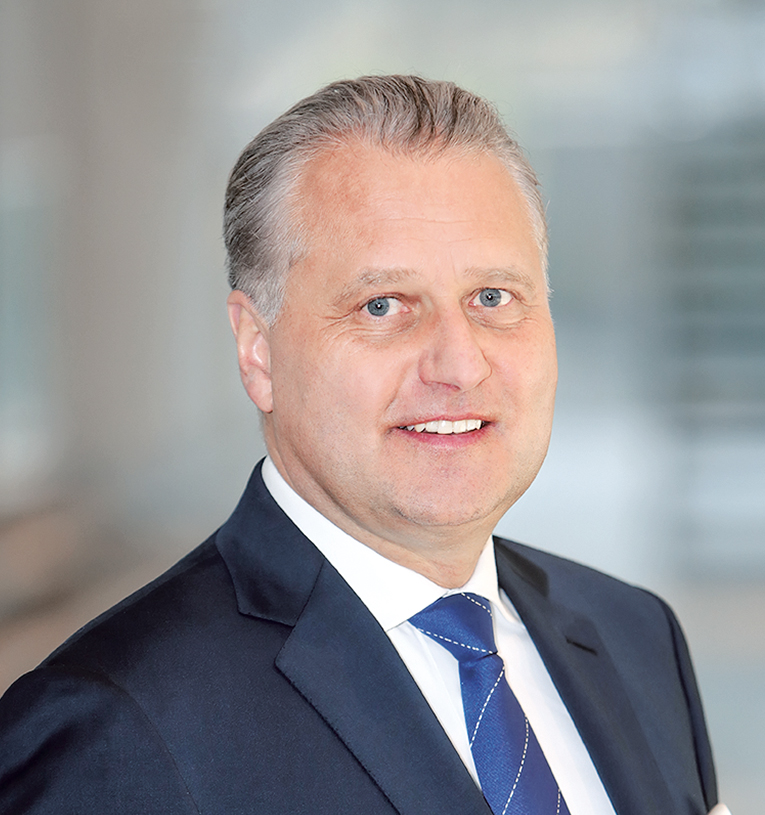
Peter E. Bodmer
1964, Swiss citizen, resident in Küsnacht ZH, lic. oec. publ., Executive MBA IMD, non-executive member of the Board of Directors since 19 April 2013. 1993 – 1994 Head of Sales at Kaiser Precision Tooling Ltd., Rümlang; 1995 – 1998 Deputy Director, Head of Integration and CFO Europe of GKN Sinter Metals GmbH; 1998 – 2005 COO and CFO of Maag Holding AG; 2005 – 2012 member of the Group Management of the Implenia Group; since 2011 various management and consulting mandates as Chairman and CEO of the BEKA Group. Peter E. Bodmer has never been part of the executive management of Arbonia or its subsidiaries. He has no material business relationship with Arbonia or its subsidiaries.
Other activities and vested interests: Vice-Chairman of the Board of Directors of Peach Property Group AG, Zurich ZH; member of the Board of Directors of Kuratle Group AG, Leibstadt AG; member of the Board of Directors of Brütsch / Rüegger Holding AG, Urdorf ZH; Vice-President of Helvetica Property Investors AG, Zurich ZH; member of the Board of Directors of Inovex Holding AG, Baar ZG; delegate of the government council of the canton of Zurich for strategic development planning of the university hospital of Zurich and general coordination of the university district; member of the Board of the Foundation of the innovation park Zurich, Zurich ZH; active as an advisor for various companies.
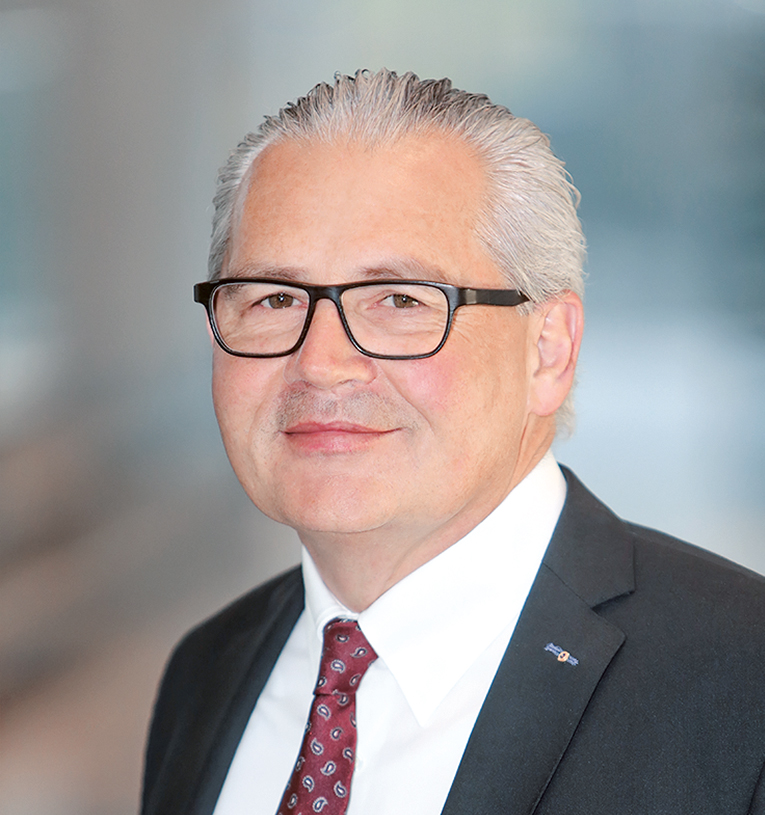
Markus Oppliger
1959, Swiss citizen, resident in Wangs SG, accounting and controlling expert with a federal diploma, auditor with a federal diploma, non- executive member of the Board of Directors since 19 April 2013. 1978 – 1983 Prefera Treuhandgesellschaft Sargans; 1983 – 1988 Bank in Liechtenstein / Prince of Liechtenstein Foundation; 1989 – 2013 at Ernst & Young, partner from 1996 and Quality & Risk Management Leader of the Advisory Services of Ernst & Young GSA (Germany, Switzerland, Austria) from 2009; various consulting mandates as an independent management consultant and owner of Oppliger Management Consulting since 2013. Markus Oppliger has never been part of the executive management of Arbonia or its subsidiaries. He has no material business relationships with Arbonia or its subsidiaries.
Other activities and vested interests: Chairman of the Board of Directors of Siga Ausstellungen AG, Mels SG; member of the Board of Directors of Pizolbahnen AG, Bad Ragaz SG; active as an advisor for various companies.
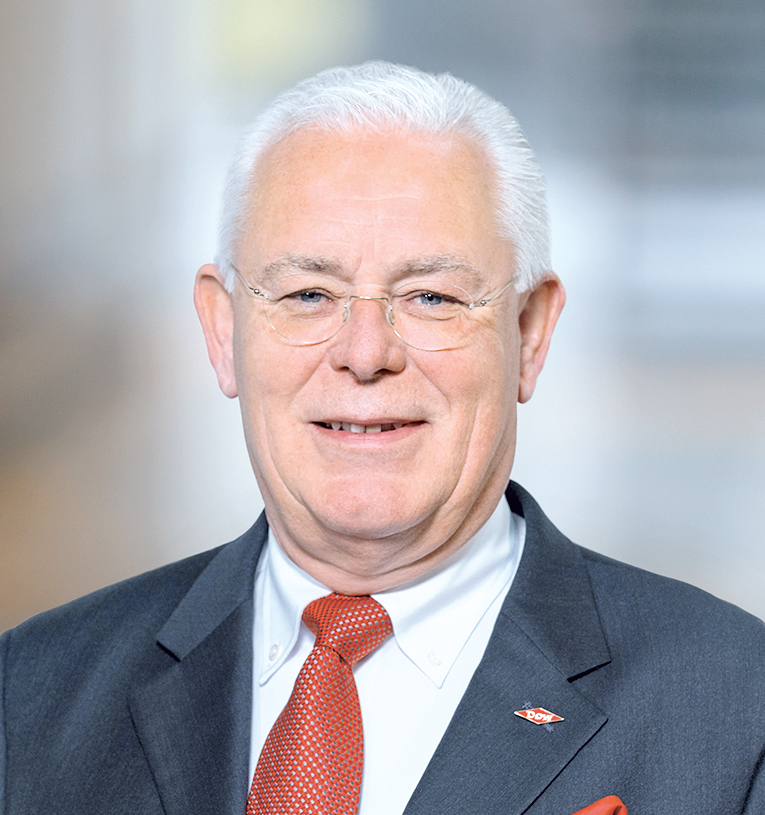
Heinz Haller
1955, Swiss citizen, resident in Andermatt UR, MBA IMD, Lausanne, non-executive member of the Board of Directors since 25 April 2014. 1980 – 1994 various leading positions in The Dow Chemical Company, Horgen / Frankfurt (D) / Midland MI (USA); 1994 – 1999 Managing Director of Plüss-Staufer AG, Oftringen; 2000 – 2001 Chief Executive Officer of Red Bull Sauber AG / Sauber Petronas Engineering AG, Hinwil; 2002 – 2006 Managing Director of Allianz Capital Partners GmbH, Munich (D); 2006 – 2010 Executive Vice-President Performance Products and Systems Divisions and DAS (Dow Agricultural Science Division) of The Dow Chemical Company, Midland MI (USA); 2010 – 2012 Executive Vice-President & Chief Commercial Officer of The Dow Chemical Company, Midland MI (USA); Executive Vice-President of The Dow Chemical Company, President Dow Europe, Middle East, Africa & India (EMEAI) since 2012. Heinz Haller has never been part of the executive management of Arbonia or its subsidiaries. He has no material business relationships with Arbonia or its subsidiaries.
Other activities and vested interests: Chairman of the Board of DowAksa Advanced Composites Holdings B.V., Amsterdam (NL); member of the Board of BioAmber Inc., Montreal (CA); member of the Board of Directors of South Pole Holding AG, Zurich ZH.
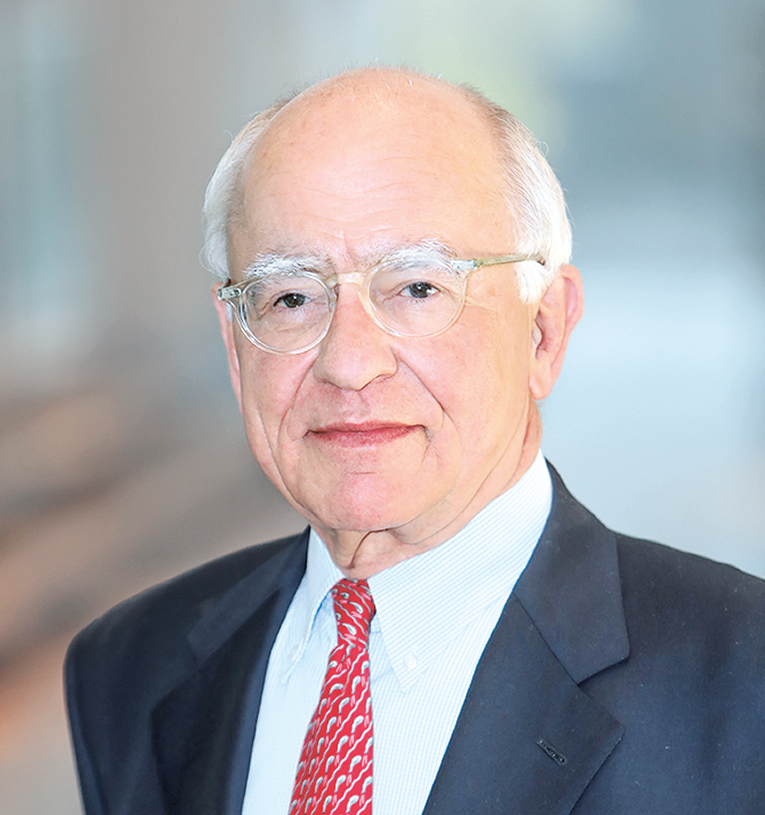
Michael Pieper
1946, Swiss citizen, resident in Hergiswil NW, lic. oec. HSG, non-executive member of the Board of Directors since 17 April 2015. Owner and CEO of the Franke / Artemis Group since 1989; 1989 – 2012 CEO of the Franke Group, CEO of the Artemis Group since 2013. Michael Pieper has never been part of the executive management of Arbonia or its subsidiaries. Michael Pieper controls the largest shareholder in Arbonia (see 1.2) and, through companies under his ownership, has material business relationships with a subsidiarie of Arbonia (see pages 149 / 150).
Other activities and vested interests: Vice-President of the Board of Directors of Franke Holding AG, Aarburg AG; member of the Board of Directors of Berenberg Bank (Schweiz) AG, Zurich ZH; member of the Board of Directors of Hero AG, Lenzburg AG; Vice-President of the Board of Directors of Forbo Holding AG, Baar ZG; Vice-President of Adval Tech Holding AG, Niederwangen BE; member of the Board of Directors of Rieter Holding AG, Winterthur ZH; member of the Board of Directors of Autoneum Holding AG, Winterthur ZH.
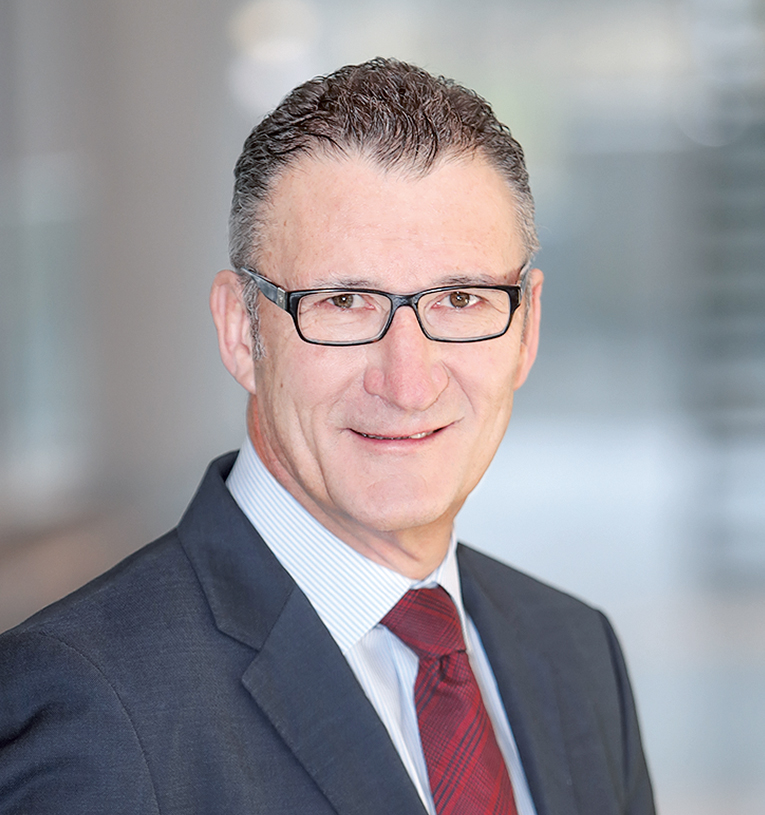
Dr Rudolf Huber
1955, Swiss citizen, resident in Pfäffikon SZ, Dr. oec. publ., non-executive member of the Board of Directors since 13 December 2016. 1982 – 1985 assistant at the Institute for Research in Business Administration of the University of Zurich; 1986 – 1987 assistant to the management and Head of Controlling, Sibir AG, Schlieren; 1987 – 1992 Director of Finance and IT, Head of Finance unit, Bucher Guyer AG (now Bucher Industries), Niederweningen; 1992 – 2004 member of the Group Management and CFO of the Geberit Group, Chairman of the Foundation Board for the Geberit pension fund and the Geberit welfare fund, Rapperswil-Jona; owner and managing director of Axega GmbH, business consultancy, Zurich, since 2005. From 2005, Dr Rudolf Huber has also been a member of the boards of directors of numerous private and listed companies, including Georg Fischer AG (2009 – 2015) and Forbo Holding AG (2005 – 2009). In 2008, Dr Rudolf Huber was elected to the Board of Directors of Looser Holding AG and acted as Chairman of this from the General Meeting in 2009 until stepping down in December 2016. Between September 2015 and December 2016, he was also Acting CEO of Looser Holding AG, in which Arbonia has had a shareholding of 98.15 % since the end of January 2017. Dr Rudolf Huber has never been part of the executive management of Arbonia. He has no material business relationships with Arbonia or its subsidiaries.
Other activities and vested interests: Chairman of the Board of Directors of Fageb Verwaltungs AG, Rapperswil-Jona (SG); member of the Board of Directors of Hoerbiger Holding AG, Zug (ZG); member of the Foundation Board of the Hoerbiger Foundation, Zug (ZG); member of the Board of Directors of Wicor Holding AG, Rapperswil-Jona (SG); member of the Board of Directors of Swiss Prime Site AG, Olten (SO); member of the Board of Directors of Christ & Heiri Holding AG, Zug (ZG); Chairman of the Advisory Board of Peri GmbH & Co. KG, Weisshorn (D); lecturer at the University of St. Gallen (SG).

Thomas Lozser
1961, Swiss and US citizen, resident in Novi, Michigan (USA), Dipl. -Ing. ETH, MBA, non-executive member of the Board of Directors since 13 December 2016. 1987 – 1988 Quality Assurance Assistant, Elco, Vilters; 1988 – 1989 Manufacturing Engineer, MPI International, Deerfield, Wisconsin (USA); 1989 – 1992 Assistant to the President and Manager Computer Systems, MPI International, Rochester Hill, Michigan (USA); 1992 – 1998 General Manager and President / Plant Manager, Kautex Textron, Avilla, Indiana (USA); 1998 – 2000 Senior Vice President Operations, Kautex Textron, Troy, Michigan (USA); 2000 – 2002 President and shareholder, Magnetic USA Inc., Olney Illinois (USA); following the takeover by SKF USA Inc., 2002 – 2005 Vice President Sales Lineartechnik, SKF USA Inc. Bethlehem, Pennsylvania (USA); 2005 – 2010 CEO of the Coatings division, Looser Holding AG, Arbon; independent entrepreneur since 2010. Thomas Lozser has never been part of the executive management of Arbonia. He has no material business relationships with Arbonia or its subsidiaries.
Other activities and vested interests: Chairman until 31 December 2016 and member since 1 January 2017 of the Board of Directors of Mopec Inc., Oak Park, Michigan (USA); member of the Board of Directors of Custom Profile Inc., Grand Rapids, Michigan (USA).
3.2Number of permissible mandates pursuant to Art. 12 para. 1 section 1 of the Swiss Ordinance Against Excessive Compensation (OaEC)
Members of the Board of Directors may have a maximum of ten mandates outside the Group, of which no more than five may be with listed companies. This rule also applies for members of the Board of Directors who, at the same time, belong to Group Management by assuming the function of a delegate of the Board of Directors and interim CEO. More details on the rules for the number of permitted mandates can be found in Art. 29 of the Articles of Association (www.arbonia.com / en / company /corporate-governance).
3.3Election and term of office
The Chairman of the Board of Directors and the other members of the Board of Directors are individually elected by the ordinary General Meeting for a term of office of one year. The members of the Board of Directors may be re-elected.
At the Extraordinary General Meeting on 1 November 2016, Dr Rudolf Huber and Thomas Lozser were elected as new members of the Board of Directors on condition that Arbonia acquire more than 50 % of the shares in Looser Holding AG and with effect from the time of that acquisition. On 13 December 2016, Arbonia acquired 97.53 % of Looser Holding AG, whereupon the Arbonia Board of Directors expanded to include the two new members on the same day.
The Extraordinary General Meeting on 1 November 2016 revoked the age restriction that had been in place in the Articles of Association up to that point, which stated that persons who had reached the age of 70 could not be elected or re-elected as members of the Board of Directors.
The terms of office of the current members of the Board of Directors are as follows:
3.4Internal organisation
3.4.1Allocation of tasks within the Board of Directors
The Chairman of the Board of Directors is Alexander von Witzleben and the Vice-Chairman is Peter Barandun. Since Alexander von Witzleben was appointed delegate of the Board of Directors and interim CEO on 1 July 201 5, Markus Oppliger has been acting as Lead Director. The Board of Directors is supported by an Audit Committee and a Nomination and Compensation Committee.
3.4.2Committees of the Board of Directors
The duties, responsibilities and working procedures of the committees are laid down in the by-laws (www. arbonia.com /en /company / organisation). The Board of Directors appoints the members of the committees, with the exception of the Compensation Committee, whose members are elected by the General Meeting. The chairpersons of the committees are appointed by the Board of Directors.
3.4.2.1Audit Committee
The Audit Committee is convened by the Chairperson as often as business requires, but at least three times a year. It consists of three members. Two members of the Audit Committee are non-executive and independent. Alexander von Witzleben, member of the Audit Committee, was appointed delegate of the Board of Directors and interim CEO on 1 July 2015. All members of the Audit Committee have experience in finance and accounting.
The Audit Committee reviews the effectiveness of the external auditors and Internal Audit, the internal control system including risk management, the compliance with standards from a financial and legal perspective, the accounting system, the financial reports and the performance, fees and independence of the external auditors. It draws up a recommendation to the Board of Directors regarding the submission of the financial statements to the General Meeting. Within the scope of these duties, the Audit Committee has comprehensive rights of inspection and information. It may order investigations and consult external advisors.
Reporting to the Audit Committee is Internal Audit, which performs an independent, Group-wide auditing and monitoring role (see 3.6 below). The Audit Committee is authorised to make decisions regarding the tasks entrusted to it provided that the respective matter does not concern a non-delegable duty of the Board of Directors pursuant to Art. 716 a of the Swiss Code of Obligations. The committee may submit issues within the scope of its decision-making powers to the Board of Directors.
The Audit Committee consists of the following members:
- Markus Oppliger, Chairman
- Alexander von Witzleben
- Peter E. Bodmer
The Audit Committee met three times during the year under review. The interim CEO was present at two of the meetings; the CFO, the external auditors and Internal Audit were present at all three of the meetings. At the subsequent meeting of the full Board of Directors, the Chairperson reports on the meetings of the Audit Committee, and the meeting minutes are sent to the meeting participants and all members of the Board of Directors. The meetings of the Audit Committee lasted two hours on average. The Chairman of the Audit Committee and the Head of Internal Audit regularly held additional meetings to discuss the findings of Internal Audit and its duties in detail.
3.4.2.2Nomination and Compensation Committee
The members of the Compensation Committee were elected by the General Meeting on 22 April 2016. The members of the Compensation Committee also take care of the duties of the Nomination Committee. Two members of the Nomination and Compensation Committee are independent. Alexander von Witzleben, member of the Nomination and Compensation Committee, was appointed delegate of the Board of Directors and interim CEO on 1 July 2015.
The Nomination and Compensation Committee is convened by the Chairperson of the committee as often as business requires, but at least three times a year. The Nomination and Compensation Committee gives the Board of Directors recommendations regarding the Group’s salary policy and compensation system. For the attention of the General Meeting, it submits requests to the Board of Directors concerning the total amount of the maximum compensation of the members of the Board of Directors, concerning the total amount of the maximum fixed and variable compensation of the members of Group Management, and concerning the determination of the salary of the individual members of Group Management within the limits of the maximum total amount approved by the General Meeting. Moreover, the Nomination and Compensation Committee approves bonus programmes and employee participation schemes as well as pension fund solutions and benefit plans in principle. The Nomination and Compensation Committee is also responsible for the preparation of the compensation report and the request to the full Board of Directors for approval. Furthermore, the committee determines the principles for the selection of candidates for election to the Board of Directors and Group Management. It identifies suitable candidates for the Board of Directors and Group Management and conducts the needed selection procedures. During the year under review, the Nomination and Compensation Committee was concerned with the succession plan for the Head of the Doors Division (formerly the Building Security Division), who stepped down at the end of April 2016. Additionally, the Nomination and Compensation Committee approved a new set of bonus regulations for the years 2016 / 2017 and submitted a proposal to the Board of Directors concerning switching to a system of retrospective votes on compensation for members of the Board of Directors and Group Management in the future.
The Nomination and Compensation Committee determines the principles of the management and development of the members of the Board of Directors and Group Management. It assists the Board of Directors in self-assessment and assesses the performance of the members of Group Management.
Essentially, the Nomination and Compensation Committee fulfils a supporting and preparatory function for the benefit of the full Board of Directors. The Nomination and Compensation Committee is only authorised to make decisions regarding the tasks expressly delegated to it under the Group’s regulation of powers. The full Board of Directors decides on matters not expressly delegated to the Nomination and Compensation Committee under the regulation of powers. The committee may submit issues within the scope of its decision-making powers to the Board of Directors.
The Nomination and Compensation Committee consists of the following members:
- Peter Barandun, Chairman
- Alexander von Witzleben
- Heinz Haller
The Nomination and Compensation Committee met three times during the year under review. The interim CEO attended all three of the meetings and the CFO attended two of the meetings. At the subsequent meeting of the full Board of Directors, the Chairman reports on the meetings of the Nomination and Compensation Committee, and the meeting minutes are sent to the meeting participants and all members of the Board of Directors.
The meetings of the Nomination and Compensation Committee lasted one and a half hours on average.
3.4.3Working procedures of the Board of Directors
The Chairperson convenes the Board of Directors as often as business requires, but at least four times a year. In the year under review, the Board of Directors held four ordinary and two extraordinary meetings. A circular resolution was also passed as part of the Looser Group takeover. In the year under review, the Board of Directors performed most of its duties directly. Ordinary meetings of the Board of Directors usually last one day, and extraordinary meetings usually last one hour. In the year under review, the interim CEO and the CFO attended all ordinary and extraordinary meetings. All members of Group Management attended the ordinary meetings of the Board of Directors and individual members of Group Management also attended the extraordinary meetings. Managers as well as representatives of Internal Audit are usually invited to meetings to discuss issues that fall within their field of responsibility or scope of activities.
The Board of Directors reviews its operability and discusses its performance on various occasions in executive sessions that usually take place at the end of every meeting.
3.5Regulation of powers
The Board of Directors is responsible for guiding, supervising and monitoring management. It represents the company externally and attends to all matters that are not transferred to another body within the company on the basis of legislation, Articles of Association or by-laws. The Board of Directors enacts the necessary rules, instructions and guidelines and establishes the organisational structure and risk policy. The main duties of the Board of Directors are:
- Guidance of the Group and issue of necessary instructions;
- Establishment of the Group’s organisational structure;
- Appointment and dismissal of persons entrusted with management;
- Supervision of persons entrusted with company management, specifically with regard to following legislation, Articles of Association, rules and instructions;
- Structuring of the accounting system, financial control and financial planning;
- Preparation of the annual report and the compensation report, as well as preparation for the General Meeting and implementation of its resolutions;
- Preparation of compensation requests for the General Meeting;
- Determination of the capital structure of the company;
- Issue of bonds, participation certificates, convertible bonds and options as well as determination of the terms and conditions;
- Determination of the strategy of the company, the divisions and the business units;
- Decisions concerning investments, joint ventures, real estates and participations, where these are of particular importance to the company and exceed a certain level;
- Annual risk assessment for the company;
- Notification of the court in the event of over-indebtedness.
The division of powers between the Board of Directors and Group Management is set out in detail in the by-laws and the regulation of powers. Unless otherwise stated in legislation, the Articles of Association or by-laws, the Board of Directors delegates management entirely to Group Management, led by the Chairperson of Group Management (CEO), pursuant to Art. 2.5 of the by-laws.
3.6Information and control instruments vis-a-vis the management
Through various channels, the Board of Directors is regularly updated on the activities of Group Management and the divisions. The management information system (MIS) provides the members of the Board of Directors with key information about the financial and income situation of the Group on a monthly basis. The interim CEO reports regularly to the Board of Directors during ordinary meetings of the Board of Directors and without delay in the event of extraordinary developments. The members of Group Management regularly attend ordinary meetings of the Board of Directors and report on business in their areas. As a rule, the members of the Board of Directors may request any additional information required to carry out their tasks.
The external auditors provide the Audit Committee with information on the main findings of the audit. Regular contact also takes place between the Chairperson of the Audit Committee, the CFO and the Head of Internal Audit (see 3.4.2.1). Where required, he too informs the other members of the Board of Directors regarding his findings.
The principal role of Internal Audit is to monitor processes and structures throughout the Group. Internal Audit summarises the audits it is to carry out in an annual audit plan. This audit plan also incorporates the risks identified by Corporate Treasury as part of the risk management process it performs every year in each of the divisions and in Corporate Functions. Each audit plan is approved by the Audit Committee. The Audit Committee also assigns special audit mandates to Internal Audit as and when required. The respective audit findings are discussed with the Audit Committee and communicated to the Board of Directors in writing. During the year under review, Internal Audit provided the members of the Board of Directors with twelve audit reports. If material risks are identified, measures are defined to reduce them. Internal Audit adopts a systematic approach to monitoring risks and measures and carries out its work in accordance with the international standards governing internal auditors’ professional duties. It regularly reports to the Audit Committee and Board of Directors on the scale of risks and any changes to the risk situation as well as the status of measures implemented. The Board of Directors received a total of four written reports on the implementation of measures during the year under review. The external auditors also have access to all audit reports and the reports from the ongoing monitoring of risks and measures. Additionally, Internal Audit issued three Internal Audit status reports informing the Audit Committee and the Board of Directors about the key findings from the audits and the current status of the ICS.
4.Group Management
4.1Members of Group Management
On 31 December 2016, Group Management consisted of the following members:

Alexander von Witzleben
(see 3.1).
Delegate of the Board of Directors and interim CEO since 1 July 2015.
Other activities and vested interests: (see 3.1)
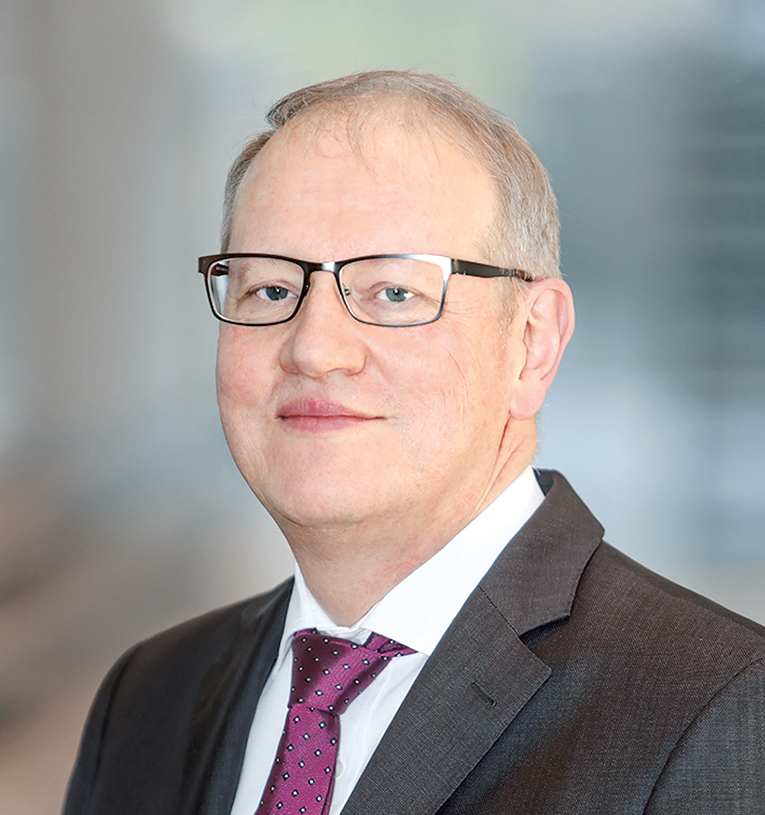
Felix Bodmer
1955, Swiss citizen, lic. oec. HSG, Chief Financial Officer (CFO) since 2003. Since 13 December 2016, Felix Bodmer has been a member of the Board of Directors of Looser Holding AG, in which Arbonia has a shareholding of 98.15 %. 1986 – 1992 various positions at Hilti Group in finance and controlling, most recently Head of Finance at a German subsidiary; 1993 – 2000 ABB / Alstom, Commercial Director / CFO of group companies, most recently CFO / Head of Shared Services at Alstom Power (Schweiz) AG; 2000 – 2003 CFO of Steiner Group.
Other activities and vested interests: Member of the Board of Directors of the Bernet-Wirona Group, St.Gallen, since June 2012; member of the Board of Directors of Looser Holding AG, Arbon TG.
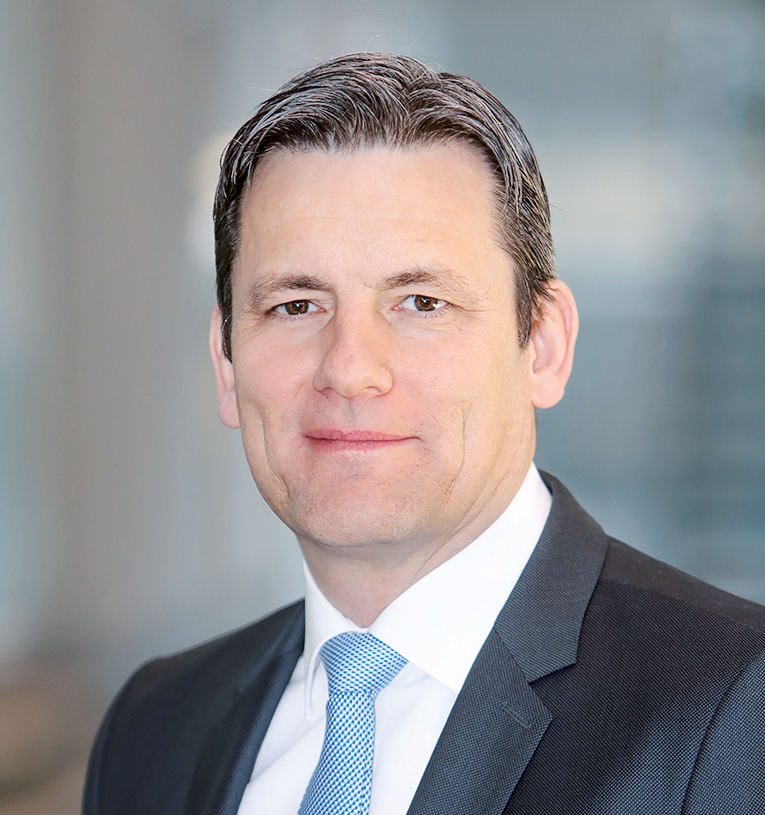
Knut Bartsch
1968, German citizen, Dipl. -Wirtsch. -Ing., Head of the Building Technology Division since 2015; 2004 – 2014 Divisional Spokesman of the Building Technology Division; 1996 – 1997 Assistant Corporate Manager at Preussag AG / TUI AG; joined Kermi GmbH in 1997, Director since 1999, Chairman of Group Management since 2015.
Other activities and vested interests: Member of the CCI plenary meeting and member of the Presidential Council of the Chamber of Commerce and Industry for Lower Bavaria since 2013.

Harald Pichler
1968, Austrian citizen, MBE Mechanical Engineering, Head of the Windows Division since 2016; 1995 – 1996 Henrik af Hellström Consulting, Senior Project Manager; 1997 – 2003 ATOMIC Austria GmbH, various positions, most recently Director Operations; 2004 – 2010 Kronoflooring GmbH / Kronospan GmbH, CEO / Managing Director; 2010 – 2015 WERU GmbH, CEO / Chairman of the Management Board; 2014 – 2015 UNILUX GmbH (following takeover by WERU GmbH), Managing Director.
Other activities and vested interests: Harald Pichler has no other material activities or vested interests.
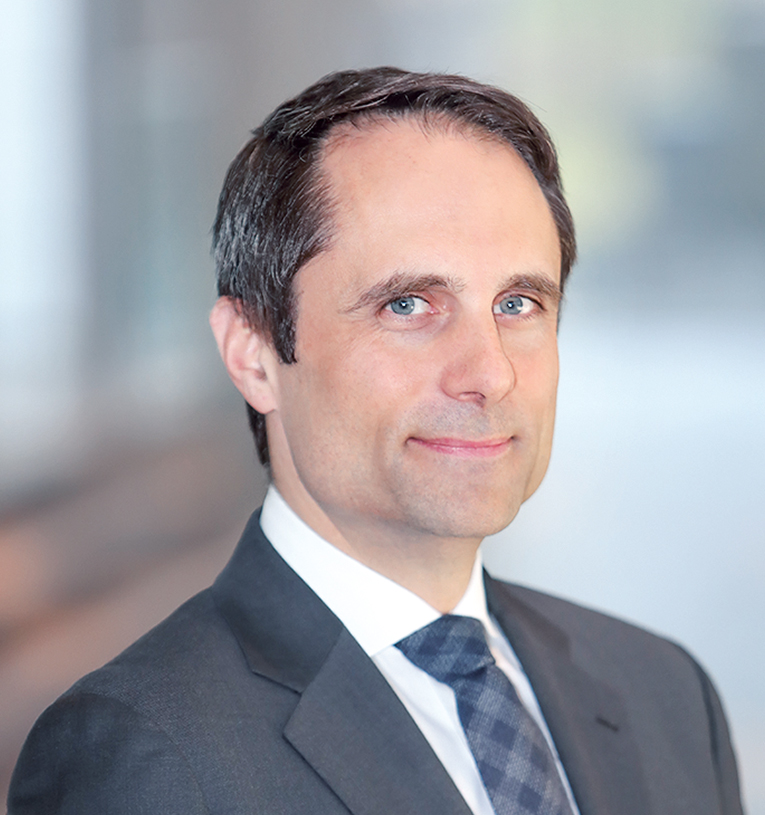
Peter Spirig
1973, Swiss citizen, Master’s in Civil Engineering, ETH Zurich, MBA, INSEAD Fontainebleau, Head of the Doors Division since 2016; 1999 – 2000 Ernst Basler + Partner AG, project manager; 2002 – 2004 Holcim Group, Assistant to Executive Committee Member; 2004 – 2009 Holcim (Lanka) Ltd, Chief Executive Officer; 2009 – 2013 Franke Foodservice Systems Asia, President; 2013 – 2016 Franke Group, member of the Group Management and President of Franke Asia.
Other activities and vested interests: Peter Spirig has no other material activities or vested interests.
4.2Number of permissible mandates pursuant to Art. 12 para. 1 section 1 of the Swiss Ordinance Against Excessive Compensation (OaEC)
Members of Group Management may have a maximum of five mandates outside the Group, of which no more than one may be with a listed company. More details on the rules for the number of permitted mandates can be found in Art. 29 of the Articles of Association (www. arbonia.com / en / company / corporate-governance).
4.3Management contracts
Arbonia has not signed any management contracts with companies or natural persons outside the Group.
5.Compensation, shareholdings and loans
5.1Content and determination procedure for compensation and shareholding programmes
The basis and elements of remuneration and the shareholding programmes as well as the procedure for their determination are presented in the compensation report here.
5.2Principles of performance-related compensation, the allocation of shares and the determination of the additional amount
The variable remuneration of members of the Group Management depends on the company results. The success criteria comprise business-related and / or personal targets. 100 % of the bonus amount determined in the individual agreement is paid out if the targets are fully achieved. If the targets are exceeded, the variable compensation may exceed the bonus amount determined by individual agreement up to a maximum amount. If achievement of the targets lies below a particular threshold, no variable compensation is paid. The variable compensation amounts to a maximum of 150 % of the fixed compensation. More details on performance-related remuneration can be found in Art. 24 of the Articles of Association (www.arbonia.com / en / company / corporate- governance).
The Board of Directors determines the details of the assignment of shares to the members of the Board of Directors and Group Management in a share-based payment programme. Art. 25 of the Articles of Association contains information on what the share-based payment programme covers (www.arbonia.com/en/company/corporategovernance).
An additional amount is available for the compensation of members of Group Management who are newly appointed or promoted after approval of the maximum total compensation for Group Management if the compensation already approved for the period involved is insufficient. This additional amount may not exceed 40 % for the CEO and 20 % each for every other member of Group Management of the approved total compensation for Group Management for the period involved. This rule can be found in Art. 27 of the Articles of Association (www.arbonia.com / en / company / corporate- governance).
5.3Loans, credit and pension benefits
According to Art. 26 of the Articles of Association, Arbonia shall not grant the members of the Board of Directors and Group Management any loans, credit or pension benefits outside the occupational pension scheme or securities. Exempt from this are advances of social security and tax charges for persons subject to withholding tax.
5.4Rules concerning voting at the General Meeting on compensation
Pursuant to Art. 23 of the Articles of Association, for each compensation period the Board of Directors brings forward motions for the General Meeting concerning prospective approval of the maximum compensation of the Board of Directors for the period until the next ordinary General Meeting and of the maximum fixed and variable compensation of Group Management for the next financial year. Art. 23 of the Articles of Association grants the Board of Directors the right to waive prospective approval of compensation on motions and to have the General Meeting approve the total amount of the corresponding payment in arrears for the previous official or financial year (retrospective approval). During the year under review, the Board of Directors resolved to have votes on compensation carried out retrospectively in future. Every year, the Board of Directors submits the compensation report for the financial year ended to the General Meeting for consultative (non-binding) approval. More details on compensation agreements can be found in Art. 23 of the Articles of Association (www.arbonia.com / en / company / corporate-governance).
6.Shareholders’ participation
6.1Voting right restriction and representation
The Articles of Association do not contain any regulations that deviate from the law with regard to participation in the General Meeting and exercise of voting rights. Each share registered in the share register entitles the holder to one vote. Every shareholder may be represented at the General Meeting by a proxy furnishing written power of attorney or by the independent proxy (with written or electronic power of attorney).
According to Art. 12 of the Articles of Association, the Board of Directors determines the requirements for the power of attorney and instructions for the independent proxy. Under this regulation, the Board of Directors is also entitled to determine the requirements for electronic voting.
6.2Statutory quorums
Under Article 13 (9) of the Articles of Association, registered shares may only be converted into bearer shares by a resolution at the General Meeting, approved by at least two thirds of the voting shares represented and the absolute majority of the nominal share value represented. Under Article 12 (6) of the Articles of Association, in the event of votes which do not produce a result in the first round, the relative majority shall decide in the second round. Apart from this, the Articles of Association do not contain any regulations that deviate from the law.
6.3Convocation of the General Meeting
The Articles of Association do not contain any regulations that deviate from the law.
6.4 Inclusion of items on the agenda
Shareholders who individually or together hold CHF 1 000 000 of nominal share capital are entitled to submit a written request for inclusion of an item on the agenda. Such requests must be submitted to the Board of Directors in writing, specifying the motions, at least 40 days before the date of the General Meeting.
6.5Entries in the share register
When sending invitations for the General Meeting, the Board of Directors will announce the date up to which entries can be made in the share register with regard to participation in the General Meeting.
7.Change of control and defence measures
7.1Duty to make an offer
A purchaser of company shares must make a public offer as stipulated by Art. 135 (1) of the Federal Act on Financial Market Infrastructures and Market Conduct in Securities and Derivatives Trading (FinfraG). There is no opting-out clause (Art. 125 (3) and (4) of the FinfraG) or opting-up clause (Art. 135 (1) of the FinfraG).
7.2Change-of-control clauses
Arbonia has no agreements or plans for the benefit of members of the Board of Directors and / or Group Management or other members of senior management that contain change-of-control clauses. However, the share-based payment programme for members of the Board of Directors and Group Management allows the Board of Directors to cancel the vesting period for the transfer of the granted shares in the event of a change of control.
8.Statutory auditors
8.1Duration of the mandate and term of office of the lead auditor
8.1.1Date of assumption of the existing mandate
PricewaterhouseCoopers AG, St.Gallen, has served as statutory auditor since the financial year 2006. It audits the annual financial statements and the consolidated financial statements of Arbonia.
8.1.2Assumption of office of the lead auditor
Beat Inauen has held the position of lead auditor since 2013.
8.2Auditing fees
In 2016, the auditors billed a total of CHF 923 000 (previous year: CHF 913 000) for auditing the annual financial statements and consolidated financial statements of Arbonia as well as the annual financial statements of the Group companies. Of this amount, the statutory auditor PricewaterhouseCoopers AG accounted for CHF 703 000 (previous year: CHF 674 000).
8.3Additional fees
In 2016, the statutory auditor PricewaterhouseCoopers AG and other auditors of Group companies billed CHF 628 000 (previous year: CHF 348 000) for additional services, CHF 551 000 of which (previous year: CHF 281 000) was attributable to PricewaterhouseCoopers AG. Of the additional services performed by PricewaterhouseCoopers AG in 2016, CHF 240 000 was for tax advice, CHF 160 000 was for work relating to due diligence, CHF 98 000 was for work in conjunction with the takeover of the Looser Group, and CHF 53 000 was for other services.
8.4Informational instruments pertaining to the external audit
The external auditors attended three meetings of the Audit Committee in the year under review. The Audit Committee monitors the qualification, independence and performance of the external auditors on behalf of the Board of Directors and reports to the Board of Directors on its findings. In the year under review, the Audit Committee oversaw the activities of the external auditors by having the reports on the annual financial statements, consolidated financial statements and management letter explained directly by the auditors (see 3.4.2.1). The external auditors and Internal Audit also regularly discuss the methodology and further development of the internal control system (ICS). Three such meetings were held in the year under review. The internal and external auditors closely cooperate in the assessment of the substance of the ICS under Art. 728 a of the Swiss Code of Obligations and the evaluation of the effectiveness and efficiency of the ICS. The following factors are considered in the choice of external auditors: professional expertise, international network (representation in the relevant countries), value for money, industry experience as well as continuity and rapid availability of the audit team.
At the request of the external auditors, the Audit Committee approves the audit fees and reviews them in light of developments in the previous year and an assessment of performance to ensure that they are appropriate. In accordance with the law, the external auditors’ lead auditor is rotated at least once every seven years.
9.Information policy
Arbonia pursues an open information policy towards the public and financial markets, based on the principles set out in the SIX Exchange Regulation listing rules and directives and in the Swiss Code of Best Practice for Corporate Governance. By means of the annual report, Arbonia provides information about business performance, organisation and strategy. Integral components of the annual report are the management report here onwards and the compensation report here onwards. Arbonia’s First Semester Financial Report contains the consolidated income statement, statement of comprehensive income, balance sheet, cash flow statement and statement of changes in equity. In the year under review, Arbonia published 16 press releases. In addition to this, Arbonia gives comprehensive reports on its operating activities at its annual financial media and analysts’ conference and at the General Meeting. Arbonia also fosters dialogue with investors and the media at special events and roadshows.
Arbonia’s contact details are as follows:
Arbonia AG
Amriswilerstrasse 50, P.O. Box, 9320 Arbon, Switzerland
T + 41 71 447 41 41, F +41 71 447 45 88
holding@arbonia.com
All company information is available on the website www.arbonia.com. Interested parties can subscribe to press releases at www.arbonia.com / en /media/subscribe-to-press-releases, and Arbonia publications can be ordered at www.arbonia.com/en/media/order-publications.
The timetable can be found on page 180 of the annual report and on the Arbonia website www.arbonia.com/en/investors.